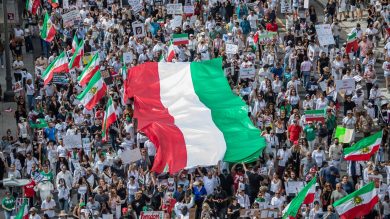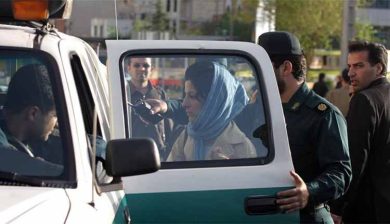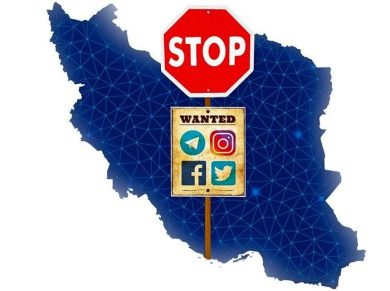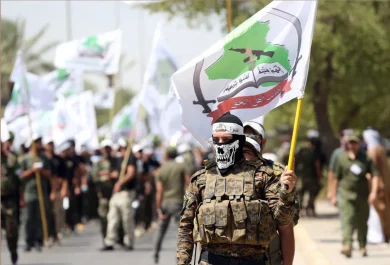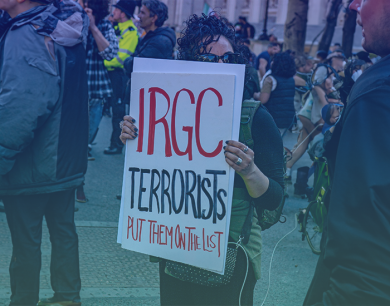The Islamic Revolutionary Guard Corps (IRGC) has evolved from a military organization into one of the most powerful economic forces in Iran. Through its vast network of front companies, state contracts, and smuggling operations, the IRGC has established an economic empire that enables it to control key sectors of Iran’s economy. This control has led to widespread corruption, suppressed private enterprise, and worsened the economic conditions for ordinary Iranians. This article explores how the IRGC’s economic power has grown, the methods it uses to maintain control, and the damaging effects of this corruption on Iran’s economy and society.
1. The IRGC’s Economic Expansion
The IRGC’s involvement in the economy began after the Iran-Iraq War (1980-1988), when it was tasked with rebuilding the country’s infrastructure. Over time, the IRGC capitalized on this role, expanding its influence across multiple sectors under the guise of national security and economic development.
A. Control of Key Industries
The IRGC now dominates critical sectors of Iran’s economy, including:
• Oil and Gas: Through companies like Khatam al-Anbia Construction Headquarters, the IRGC secures lucrative contracts in Iran’s energy industry.
• Construction and Infrastructure: The IRGC handles large-scale projects such as dams, roads, and ports.
• Telecommunications: The IRGC controls significant portions of Iran’s telecommunications infrastructure, aiding both economic control and state surveillance.
B. Exploiting State Contracts
The IRGC benefits from no-bid contracts, allowing it to outcompete or coerce private businesses. Many of these contracts are awarded under non-transparent conditions, further entrenching corruption.
2. Corruption within the IRGC’s Economic Network
The IRGC’s control over the economy has created an environment of systemic corruption, where embezzlement, bribery, and fraud are rampant.
A. Embezzlement and Financial Mismanagement
• IRGC officials have been implicated in numerous corruption scandals, involving the misappropriation of billions of dollars from state resources.
• Funds intended for infrastructure projects are often diverted, resulting in poor-quality construction and incomplete projects.
B. Smuggling Operations
• The IRGC operates extensive smuggling networks, bypassing both domestic regulations and international sanctions.
• These operations deprive Iran’s government of tax revenue and distort local markets by undercutting legal businesses.
C. Monopoly and Suppression of Competition
• Private companies often struggle to compete with IRGC-affiliated firms, which enjoy political protection and access to state resources.
• Entrepreneurs face intimidation, forced buyouts, and legal obstacles designed to maintain the IRGC’s dominance.
3. Impact on Ordinary Iranian Citizens
The IRGC’s economic empire has had severe consequences for the Iranian people, exacerbating poverty, unemployment, and inflation.
A. Economic Inequality
• While IRGC elites amass wealth and privileges, ordinary citizens face rising living costs and declining job opportunities.
• Iran’s middle class has been eroded, with many families falling into poverty.
B. Currency Devaluation and Inflation
• The IRGC’s mismanagement and corruption contribute to economic instability, leading to hyperinflation and the devaluation of Iran’s currency, the rial.
• Basic goods such as food, medicine, and housing have become unaffordable for many Iranians.
C. Impact on Youth and Professionals
• Economic stagnation has led to high unemployment rates among Iran’s youth and educated professionals.
• Many Iranians, particularly skilled workers, have sought emigration to escape the country’s dire economic conditions, worsening Iran’s brain drain.
4. Funding Repression and Terrorism
The IRGC uses profits from its economic activities to fund both domestic repression and regional military operations.
A. Financing Domestic Repression
• The IRGC allocates resources to security forces, including the Basij militia, to suppress protests and dissent.
• Activists, journalists, and minority groups are often targeted using funds generated from IRGC-controlled industries.
B. Supporting Proxy Wars
• The IRGC channels money to proxy groups such as Hezbollah, Shia militias in Iraq, and Houthi rebels in Yemen.
• These activities contribute to regional instability and undermine peace efforts in the Middle East.
5. International Sanctions and Their Impact
In response to the IRGC’s activities, many countries have imposed targeted sanctions aimed at weakening its economic networks.
A. Effectiveness of Sanctions
• Sanctions have disrupted some of the IRGC’s financial operations, limiting access to foreign assets and international trade.
• However, the IRGC has adapted by expanding smuggling operations and domestic monopolies.
B. Collateral Damage
• Sanctions have also worsened economic conditions for ordinary Iranians by reducing foreign investment and limiting access to goods.
• Critics argue that sanctions must be better targeted to minimize harm to civilians while maximizing pressure on the IRGC.
6. Recommendations for Economic Reform
Addressing the IRGC’s control over Iran’s economy requires both internal reforms and international cooperation.
A. Strengthening Transparency and Accountability
• Anti-corruption measures should include independent audits of state contracts and public oversight of IRGC-affiliated businesses.
• Whistleblowers and investigative journalists need protection to expose corruption without fear of retaliation.
B. Supporting Private Enterprise
• Reforms that promote competition and reduce barriers to private investment can help limit the IRGC’s economic influence.
• Encouraging entrepreneurship and small businesses can revitalize Iran’s economy and create job opportunities.
C. International Collaboration
• Multilateral sanctions and diplomatic pressure should focus on dismantling the IRGC’s global financial networks.
• Support for civil society organizations can help strengthen human rights and rule of law in Iran.
Conclusion
The IRGC’s economic empire has entrenched corruption, suppressed economic growth, and worsened living conditions for millions of Iranians. Addressing this issue requires coordinated efforts to increase transparency, weaken the IRGC’s control, and empower civil society. By promoting economic justice and accountability, both domestic and international stakeholders can help pave the way for a more prosperous and equitable future for Iran.
Join Our Newsletter!
Stay informed with the latest updates, news, and ways to take action in the fight for justice and global security. Sign up now to get updates delivered straight to your inbox!

